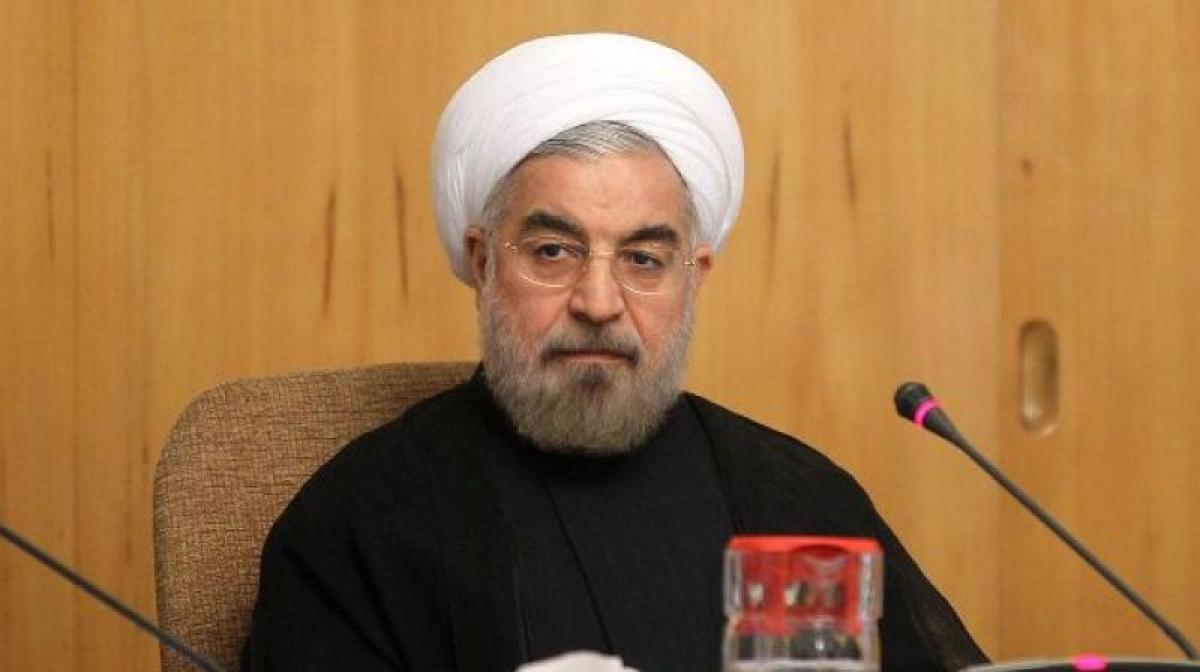Live
- Assam Regiment & Assam Rifles mourn death of brave soldier
- Neeraj Chopra is a 'cool cat', very consistent, he will win the gold, says AFI chief Sumariwalla
- Kerala Police reopens 15-year-old case of missing woman, four taken into custody
- Porsche case: Pune court grants bail to builder father-son Agarwal duo
- Jr Women & Men North Zone Hockey: Chandigarh, U.P and Punjab win on Day 2
- BJP, Congress workers come to blows over LoP Rahul Gandhi's remarks
- 116 killed in stampede at religious event in UP's Hathras
- PM Modi accuses Congress of historical bias against Dalits, backward classes
- PM Modi congratulates new Dutch PM Schoof
- Russia to build new orbital station by 2033
Just In

Iran has taken \"significant steps\" to roll back its nuclear programme under which it has eliminated 98 per cent of its highly enriched uranium stockpile and disconnected thousands of centrifuges, the US has said.
Iran has taken "significant steps" to roll back its nuclear programme under which it has eliminated 98 per cent of its highly enriched uranium stockpile and disconnected thousands of centrifuges, the US has said.
"We have verified that Iran has taken significant steps to actually roll back their nuclear programme," White House Press Secretary Josh Earnest said.
"The worst-case, dire predictions of the deal's critics did not at all come to pass. What did come to pass is exactly what this administration indicated our objectives were, which were to curtail Iran's nuclear programme, guarantee access for international inspectors who could verify that Iran's nuclear program only exist for peaceful purposes," he said in response to a question on reports about Iran test-firing another ballistic missile.
Earnest said that it is clear is that Iran has eliminated 98 per cent of its highly enriched uranium stockpile and disconnected thousands of centrifuges.
On July 14, 2015, the Joint Comprehensive Plan of Action announced a comprehensive nuclear agreement between Iran and the P5+1 (the US, the UK, Russia, France, China and Germany) and the EU.
"Iran has essentially rendered harmless its heavy-water plutonium reactor. And Iran has complied with its commitment to give international inspectors widespread access to the country to verify its compliance with the agreement," he said.
Talking about how the deal has proved the critics wrong, Earnest said that there were doubts on how Iran's claims that they had gone along with the agreement will be verified but they were able to verify Iran's compliance with the agreement.
"Our critics often suggested that there would never be a way to verify Iran's claims that they had gone along with the agreement. They were wrong about that, too. The international inspectors at the IAEA (International Atomic Energy Agency) have gotten the access that they have needed to verify Iran's compliance with the agreement," Earnest said.
"What our critics have also suggested is that the agreement would open the door to hundreds of billions of dollars in cash for the Iranian economy. That has not occurred either. In fact, we actually see some in Iran suggesting that they haven't gotten as much funding out of the deal as they expected," he said.
The concerns the international community, including the US, has about Iran's ballistic missile programme are longstanding concerns. Those concerns continue, he noted.
"Our efforts to counter their ballistic missile programme haven't waned in the aftermath of the Iran deal.
"In fact, we've actually stepped up our efforts to coordinate with our GCC partners, with Saudi Arabia and with Israel, both to put in place an architecture to counter Iran's ballistic missile programme, but also to ramp up enforcement of international sanctions that prevent Iran from being able to acquire resources and materials through illicit means," he said.
Gulf Cooperation Council (GCC) is an alliance of six Middle Eastern countries - Saudi Arabia, Kuwait, the UAE, Qatar, Bahrain and Oman.

© 2024 Hyderabad Media House Limited/The Hans India. All rights reserved. Powered by hocalwire.com







